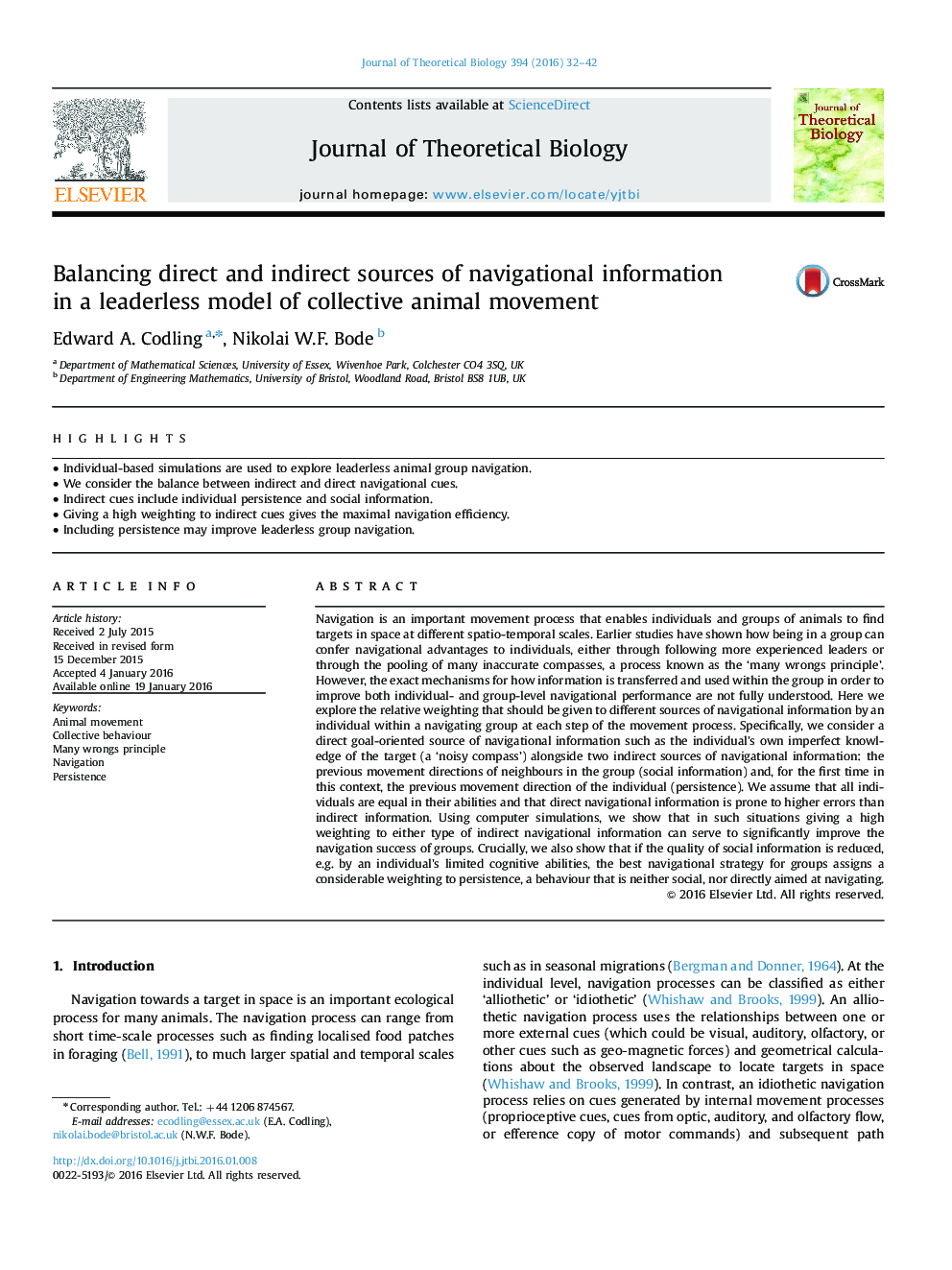| Article ID | Journal | Published Year | Pages | File Type |
|---|---|---|---|---|
| 4495882 | Journal of Theoretical Biology | 2016 | 11 Pages |
•Individual-based simulations are used to explore leaderless animal group navigation.•We consider the balance between indirect and direct navigational cues.•Indirect cues include individual persistence and social information.•Giving a high weighting to indirect cues gives the maximal navigation efficiency.•Including persistence may improve leaderless group navigation.
Navigation is an important movement process that enables individuals and groups of animals to find targets in space at different spatio-temporal scales. Earlier studies have shown how being in a group can confer navigational advantages to individuals, either through following more experienced leaders or through the pooling of many inaccurate compasses, a process known as the ‘many wrongs principle’. However, the exact mechanisms for how information is transferred and used within the group in order to improve both individual- and group-level navigational performance are not fully understood. Here we explore the relative weighting that should be given to different sources of navigational information by an individual within a navigating group at each step of the movement process. Specifically, we consider a direct goal-oriented source of navigational information such as the individual׳s own imperfect knowledge of the target (a ‘noisy compass’) alongside two indirect sources of navigational information: the previous movement directions of neighbours in the group (social information) and, for the first time in this context, the previous movement direction of the individual (persistence). We assume that all individuals are equal in their abilities and that direct navigational information is prone to higher errors than indirect information. Using computer simulations, we show that in such situations giving a high weighting to either type of indirect navigational information can serve to significantly improve the navigation success of groups. Crucially, we also show that if the quality of social information is reduced, e.g. by an individual׳s limited cognitive abilities, the best navigational strategy for groups assigns a considerable weighting to persistence, a behaviour that is neither social, nor directly aimed at navigating.
